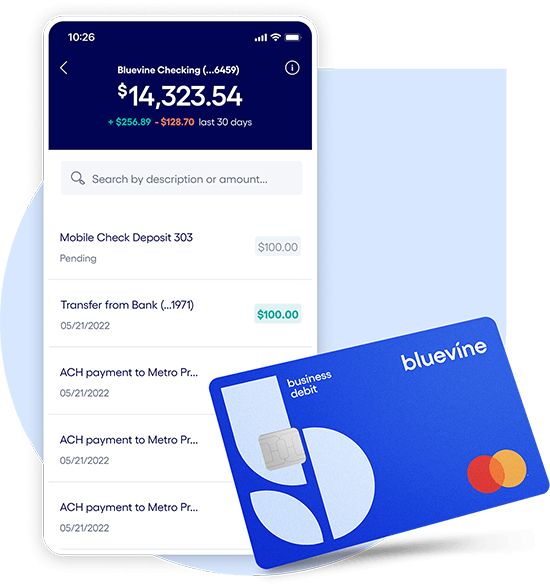If you’re reading this, it’s fair to say you’re exploring financing for your small business—and you’re likely considering a bank loan or alternative financing option. To help you make the most informed decision for your business’s financing needs, we put together this guide to show you:
- The pros and cons of small business bank loans
- What factors/features to consider in a small business loan
- How to get a small business loan from a bank
- Alternative financing options for small businesses
What are the disadvantages of bank loans for small businesses?
There are a plethora of small business loan options out there, including traditional bank loans, business lines of credit, invoice factoring, accounts receivable funding, capital loans, equity financing, and more.
Before taking the traditional route of seeking financing from a bank, you may want to consider these advantages and disadvantages of bank loans for small businesses:
- Advantages:
- High dollar amounts
- Low interest rates
- Long payment terms
- Tax-deductible interest payments
- Unrestricted funds
- Disadvantages:
- Long application process
- A lot of paperwork required
- Low approval rates for small businesses
- Collateral requirements
- Tough minimum qualifications
We go into these in more depth below, but first, let’s look at some factors to consider in a small business bank loan.
What factors should I think about when considering a small business loan from a bank?
When you’re looking for financing—especially from a bank—you should weigh your options against a handful of variables. This will allow you to compare lenders and ensure that you get the right financing for your business and the specific investment you’re planning to make. Here are five common factors to consider:
- Loan amount. How much money do you need? Banks typically lend between $250,000 – $1 million.
- Turnaround time. When do you need the funds? Between gathering necessary paperwork for your loan application, to waiting for a decision and funding, the traditional bank process can take up to 6 months.
- Credit score. What is your personal FICO score and do you have any business credit? These will impact your qualifications for different lenders. For example, banks do a hard credit pull and require a strong credit profile.
- Time in business. How long have you been in business? Banks typically lend to businesses with years of operating history.
- Collateral. Do you have assets to secure your loan? Most banks require collateral—or, at the very least, a personal guarantee.
Advantages of bank loans for small businesses
As we noted above, there are several advantages to small business bank loans. Let’s break them down:
- High dollar amounts. Bank loans typically go up to $1 million, whereas alternatives often are much lower
- Low interest rates. Banks typically offer interest rates between 4%-13%—lower than most credit cards, venture funding, and other alternative financing options. What’s more, the interest payments are tax-deductible.
- Long payment terms. Payment terms tend to be years long (sometimes as long as 25 years), which can give you lots of flexibility.
- Unrestricted funds. Unlike venture capital and angel investments, bank loans are unrestricted, which means you can use the funds for whatever you need.
These are indeed great features, but there are some not-so-great features of bank loans for small businesses to consider as well.
Disadvantages of bank loans for small businesses
In many ways, bank loans seem like a great option for businesses of all kinds. But the reality for small business owners is that bank approval rates tend to be low for small and online businesses. Banks are risk-averse, so they have rigorous processes in place to ensure that they only lend to businesses with the longest track records of healthy financials. Not only that, they have complicated and manual application systems that take a lot of time—often more time than you have to wait for funding. Here’s a deeper look at these and other disadvantages:
- Long application process: To apply for a bank loan, you need to provide significant paperwork and have a site visit with a loan officer at your business. It can take weeks — sometimes months — to get a decision.
- Low approval rates for small businesses: According to Biz2Credit’s Small Business Lending Index, big banks approved just 13.6% of their loan applications in August 2020.
- Collateral requirements: Banks require businesses to secure their loans with collateral, such as real estate or equipment. As a small business owner, these requirements can get steep fast.
- Tough minimum qualifications: Bank loans are designed for large, established businesses with years of operating history, physical brick-and-mortar locations, and excellent credit for both the business and its owner. This can make it challenging for SMBs to qualify.
Where can I find banks that do small business loans?
Getting a small business loan from a bank is a good option for businesses who meet these qualifications. If you’re not sure, you could talk to your local bank about your financing options there, check out the SBA’s list of small business lenders, or look into financing options at companies like Bluevine.
How to get a small business loan from a bank
Each bank will have its own set of requirements for a business loan. In general, you’ll need strong business and personal credit as well as some or all of the following paperwork:
- Business plan with financial projections
- Financial statements (like balance sheet and income statements)
- Personal and business bank statements
- Personal and business tax returns
- Business licenses and articles of incorporation
- A resume (to show your business/management experience)
Part of the reason why it takes so long to get a decision from a bank is because they have so much paperwork to review. Looking for something faster, more convenient, and with higher approval rates? You might want to consider a company like Bluevine, which offers small business financing options designed with the business owner in mind—i.e. with simple online applications, little to no paperwork required, and decisions and funding in as fast as 24 hours.
What are some alternative financing options for small businesses?
As a small business owner, your financing needs are likely urgent. In other words, you can’t wait weeks or months to see if you’re approved for a bank loan. Instead, you need a lender that can get you the funds you need, when you need them. That way, you can invest in growth and maximize your ROI.
To help you narrow down the type of financing that is right for your business, refer to this table of alternative financing options and loan considerations:
| Banks | Bluevine | Equity Financing | Short-term business loan | |
|---|---|---|---|---|
| Financing Type | Business loans and lines of credit | Business line of credit & invoice factoring | Term loan in exchange for equity | Business loan with terms from 3-24 months |
| Loan Amount | $250,000 – $1 million | Line of credit up to [bv-amount product=”line-of-credit” amount=”max” format=”number”] Factoring lines up to [bv-amount product=”invoice-factoring” amount=”max” format=”word”] | Depends on the type of equity deal (i.e. angel vs. VC) | Typically up to $250,000 |
| Loan Term | 3-25 years | Line of credit is revolving Invoice factoring payments are due when your client pays you. See example. | Depends on type of deal and your specific arrangement | 3-24 months |
| Interest Rate | 4% – 13% | Line of credit as low as [bv-rates product=”line-of-credit”]% Factoring as low as [bv-rates product=”invoice-factoring”]% per week | Repayment typically based on equity ownership stake and share in profits | High APRs, sometimes in the triple digits |
| Paperwork Required? | Yes | No | Yes | No |
| Application & Funding Time | 2 weeks to 6 months | [bv-approvals product=”invoice-factoring”] | Can take a long time to find an investor | As fast as 24 hours |
Bluevine’s business financing options—a line of credit and invoice factoring—are designed with your unique needs in mind. The application takes just 10 minutes to complete with approval and funding in as fast as 24 hours. Use the funds to invest in inventory, launch a new product, turn unpaid invoices into working capital, and more.
At the end of the day, you need a lender that is more than a financing partner—one that understands your unique credit needs, offers financing options that meet those needs, and has application and funding processes that value your time. You’ll get all of that—and more—with Bluevine. Learn more and begin an application at www.Bluevine.com.
Small business checking, built for your needs
Unlimited transactions, live support, high interest rates, and no monthly fees. Open a Bluevine business checking account online today.
Learn more
